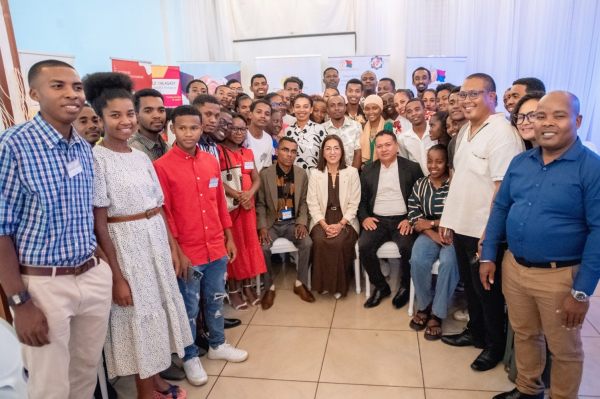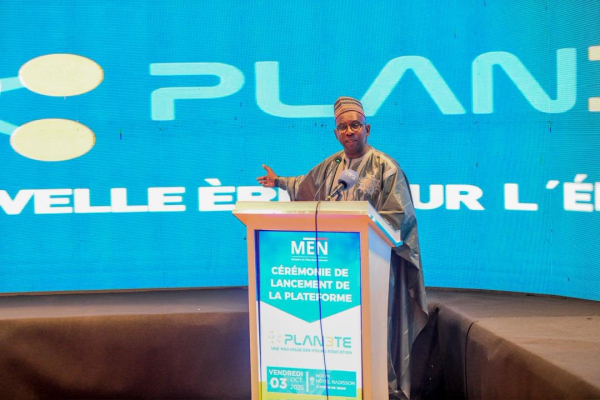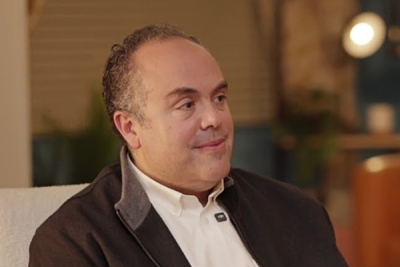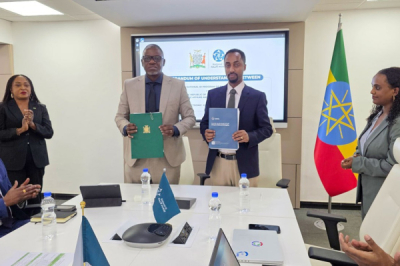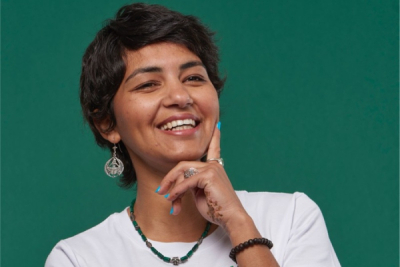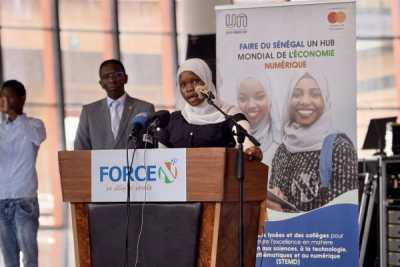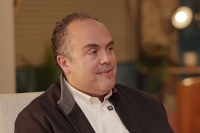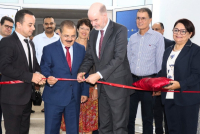-
Madagascar launched the first cohort of the Skills4Job program to equip young people with key digital skills.
-
The initiative, aligned with the 2023–2028 Digital Strategic Plan, started with 51 participants in Toamasina.
-
The government aims to train 40,000 people by 2028 as part of broader efforts to reduce youth unemployment.
The Malagasy government launched on Thursday, October 2, the first cohort of the “Skills4Job” program, designed to equip young people with essential digital skills and improve their readiness for the labor market. The program began with 51 participants in the port city of Toamasina and will gradually expand nationwide.
According to Stéphanie Delmotte, Minister of Digital Development, Posts, and Telecommunications, the free training provides participants with the tools needed to face the challenges of tomorrow’s digital economy.
This initiative aligns with the country’s Digital Strategic Plan (PSN) 2023–2028, which aims to make Madagascar a key player in Africa’s digital economy through advances in telecommunications, e-government, and digital inclusion. The World Bank estimates that about 230 million jobs in sub-Saharan Africa will require digital skills by 2030 as the continent continues its digital transformation.
In September, the Minister of Technical Education and Vocational Training, Marie Marcelline Rasoloarisoa, announced plans to train 40,000 people in digital skills by 2028. Earlier, in February 2024, Madagascar signed a partnership agreement with the United Arab Emirates to train one million young people in new technologies.
Youth employment remains a major concern in Madagascar. According to Afrobarometer, more than four in ten Malagasy aged 18 to 35 were unemployed and actively seeking work in 2024. The study identified lack of adequate training or preparation (30%), lack of experience (27%), and mismatch between school qualifications and market needs (16%) as key barriers to employment.
-
Senegal’s Ministry of Education launched PLANETE 3, a digital platform to modernize school management.
-
The system offers real-time monitoring of attendance, grades, and student performance, with UNICEF’s support.
-
The initiative is part of a CFA130 billion ($233 million) national digital education strategy for 2025–2029.
Senegal’s Ministry of Education officially launched “PLANETE 3” on Friday, October 3, a digital platform designed to modernize the management of schools and educational institutions. Developed by local engineers, the system aims to end the fragmentation and isolation of the country’s education network.
“PLANETE 3 is not just a technological upgrade. It represents a fundamental shift and marks the irreversible transition toward a more connected, participatory, and dynamic educational community,” said Education Minister Moustapha Guirassy during the launch ceremony in Dakar.
The platform provides each education stakeholder with a personalized interface. It includes features for real-time tracking of attendance, grades, and report cards, as well as remote learning tools for struggling students, developed with UNICEF’s support. Intelligent dashboards will also allow education officials, including the minister, to monitor the entire system nationwide.
The initiative is part of the National Digital Strategy for Education 2025–2029, unveiled in January with an estimated budget of CFA130 billion (about $233 million). The strategy seeks to modernize Senegal’s schools and improve their appeal. It also follows the launch of a large-scale program to train 105,000 teachers in digital tools and artificial intelligence to support the country’s educational transformation.
For teachers, PLANETE 3 is expected to reduce administrative burdens, freeing more time for innovation in the classroom. Parents will gain real-time visibility through instant notifications, while students will receive more personalized support, especially those facing academic challenges. For administrators, the tool provides a powerful decision-making and management instrument, helping to build a more efficient and inclusive education system.
However, several challenges remain to ensure the platform’s success. Connectivity issues, limited computer access in some schools, and potential overload during peak usage periods will need to be addressed to guarantee smooth and equitable implementation across the country.
-
Moroccan entrepreneur Mohammed El Beltagy leads Optomatica, an AI-first consultancy.
-
He has founded or co-founded multiple startups in fintech, sports tech, and digital health.
-
His career spans senior roles in innovation and AI-driven platforms across industries.
Mohammed El Beltagy, a Moroccan entrepreneur and expert in advanced optimization and modeling, is the founder and CEO of Optomatica, a deep tech consulting firm specialized in artificial intelligence (AI), machine learning, and optimization.
Created in 2003, Optomatica develops custom systems designed to accelerate the path from concept to finished product. Positioned as an “AI-First” company, it delivers optimization software and applies its technologies across diverse operational contexts.
The firm works in several sectors, including fintech, sports technology, digital health, conversational AI, logistics, and process optimization. Its mission is to deliver practical AI applications and unlock new technical opportunities for clients and their markets.
Beyond Optomatica, El Beltagy has launched several ventures. In 2014, he co-founded Racefox, a digital coach for running and cross-country skiing. In 2018, he helped create ConsultingPad, a platform connecting consultants and businesses, and joined AIM Technologies, an AI company, as a board member. In 2021, he was involved in launching Optofolio, a wealth management platform; Jilatee, focused on circular fashion; and DFin Holding, a fintech.
Since 2022, he has been co-founder and chief technology officer of Flend, a financing platform that uses data and technology to support small and medium-sized enterprises. The same year, he founded Racemate, a sports-focused technology company, where he serves as chairman and CTO.
El Beltagy earned a bachelor’s degree in biomedical engineering in 1994 from the American University in Cairo, followed by a master’s in mechatronics in 1996 from Lancaster University in the United Kingdom. He later obtained a PhD in mechanical engineering from the University of Southampton in 2000.
His career also includes leadership roles in tech companies. From 2007 to 2017, he worked at Hive Streaming, a company specialized in live video streaming for organizations, where he served first as chief scientist and later as chief innovation officer. Between 2013 and 2017, he was chief innovation officer at Novelari, an innovation accelerator. More recently, from 2020 to 2021, he was chief technology officer at Elves, an Egypt-based travel application.
-
Zambia and Ethiopia signed a cooperation deal to develop national digital ID systems.
-
Ethiopia shares experience from its Fayda program, with 25 million citizens already enrolled.
-
UNECA estimates digital ID could add 3–7% of GDP by cutting costs and boosting inclusion.
Zambia and Ethiopia signed a memorandum of understanding on October 2 to work together on developing national digital identity systems. The agreement, reached under the Permanent Joint Commission of Cooperation, aims to improve citizens’ access to essential services while strengthening transparency and public accountability.
The partnership will involve a transfer of expertise from Ethiopia to Zambia, particularly in biometric enrollment, open standards, and interoperable systems. Zambia expects to draw on Ethiopia’s experience to accelerate its identification infrastructure.
Ethiopia has moved ahead with its Fayda national digital ID program, launched in 2023, which seeks to provide secure digital identities to the entire population. More than 25 million people have already registered, with a target of 90 million by 2027.
In Zambia, progress is more recent but notable. In 2024, the country digitized 81% of its old paper identity cards within just three months. However, challenges remain, including a low birth registration rate of 14% in 2024, which limits overall coverage.
Beyond improving public services, the initiative is expected to support financial and social inclusion. According to the UN Economic Commission for Africa (UNECA), a well-designed digital ID system could generate value equivalent to 3–7% of GDP in African countries by reducing administrative costs and better integrating citizens into the formal economy.
For both Zambia and Ethiopia, the project is seen as a driver of development and aligns with the African Union’s Agenda 2063, which promotes local digital solutions to foster regional integration and sustainable growth. By adopting interoperable digital identities, the two countries are laying the groundwork for inclusive ecosystems that can stimulate economic activity and strengthen trust between citizens and institutions.
If fully implemented, the initiative could place Zambia and Ethiopia at the forefront of Africa’s digital transformation. Still, challenges remain, including ensuring data protection, achieving cross-platform interoperability, preventing the exclusion of rural and low-connectivity populations, and securing sustainable financing for large-scale deployment and maintenance.
Moroccan agri-food engineer and entrepreneur Wissal Ben Moussa co-founded Sand to Green in 2022 and serves as its agricultural director. The agri-tech startup focuses on regenerative farming projects aimed at restoring degraded soils and improving agricultural resilience.
Sand to Green builds its models on environmental data analysis, guiding farmers and industry players toward resilient, traceable systems with measurable climate and economic impact.
The company developed RegenWise, a software platform that evaluates land characteristics and generates project scenarios including crop selection, plant combinations, spatial layouts, and irrigation systems. The tool provides technical guides for implementation, tracks plantation progress, and produces reports aligned with ESG certification standards. It also supports processes related to carbon credit initiatives.
In September 2025, Sand to Green secured third place in the national round of the Orange Social Venture Prize for Africa and the Middle East (POESAM). The startup also joined the AI Founder Sprint program at INSEAD’s AI Venture Lab and was named a finalist in the Food Tech Challengers competition.
Ben Moussa graduated in 2012 as an agri-food engineer from the Hassan II Agronomic and Veterinary Institute in Morocco and earned a master’s degree in innovation management for agro-industries from AgroParisTech in 2013.
Her early career included research at the INRH’s specialized seafood processing center in 2012 and a junior consulting role at Quaternaire in 2013. In 2014, she joined the Moroccan Innovation Center as a performance and development officer. From 2015 to 2017, she worked at Unilever Morocco in food R&D, supporting the local head of the department.
This article was initially published in French by Melchior Koba
Adapted in English by Ange Jason Quenum
• Senegal launched a $233 million national program to train 105,000 teachers and administrators in digital tools and artificial intelligence.
• The program is part of the government’s Education Digital Strategy 2025–2029 and includes distributing computers to science students.
• Connectivity gaps remain a challenge, as 40% of Senegal’s population lacked internet access in 2023, according to the ITU.
Senegal’s government is accelerating its digital transformation strategy through new capacity-building initiatives. In August, authorities already organized digital training for members of parliament.
On September 30, the Ministry of National Education (MEN) officially launched a national program to train teachers in digital skills and artificial intelligence. The initiative also includes providing computers to students in science tracks. Officials described the program as the operational start of the country’s Education Digital Strategy 2025–2029, which carries a budget of CFA130 billion (about $233 million) announced in January.
The program stems from a partnership signed in March 2025 between the Ministry of National Education and the Ministry of Higher Education, Research, and Innovation. It targets 105,000 teachers and administrative staff to integrate digital tools and AI into teaching and school management.
The online training will be accessible via computers, tablets, or smartphones connected to the internet. It includes interactive content, self-learning modules, and certified assessments. Teachers will learn to adapt their methods to technological changes, use digital resources to enrich learning, raise student awareness of digital and AI issues, and strengthen cybersecurity and data protection in schools.
“The final objective of this initiative is to integrate digital tools directly into the classroom, not only to modernize teaching but also to create an ecosystem adapted to 21st-century requirements,” the ministry said. “This program is not limited to teacher training. It represents a paradigm shift that will allow Senegalese students to move from being simple consumers of technology to becoming creators and innovators.”
Successful implementation depends on several factors. Access to compatible devices, the cost of internet connections, digital literacy, and telecom coverage remain significant barriers. According to the International Telecommunication Union (ITU), nearly 40% of Senegal’s population lacked internet access in 2023.
This article was initially published in French by Isaac K. Kassouwi
Adapted in English by Ange Jason Quenum
Moroccan entrepreneur Mohammed El-Beltagy has built his career around applying artificial intelligence to business performance. He founded and leads Optomatica, a deep-tech consulting firm specializing in AI, machine learning and advanced optimization.
Optomatica focuses on accelerating the transition from ideas to final products by developing tailored AI systems that improve decision-making and data management. The company positions itself as “AI-First” and adapts its technologies to operational contexts across industries.
Founded in 2003, Optomatica operates in fintech, sports technologies, digital health, conversational intelligence, logistics, and process optimization. The firm aims to create practical AI applications and unlock new technical opportunities for clients and their markets.
Alongside Optomatica, El-Beltagy has pursued multiple ventures. In 2014, he co-founded Racefox, a digital coach for running and cross-country skiing. Four years later, he launched ConsultingPad, a platform linking consultants with enterprises, and joined AIM Technologies, an AI-focused firm, as a board member.
In 2021, he helped establish Optofolio, a wealth management platform; Jilatee, a circular fashion company; and DFin Holding, a fintech venture.
Since 2022, El-Beltagy has served as co-founder and chief technology officer of Flend, a financing platform that uses data and technology to support small and medium-sized enterprises. That same year, he founded Racemate, a sports technology company, where he chairs the board and serves as CTO.
El-Beltagy graduated in biomedical engineering from the American University in Cairo in 1994. He earned a master’s degree in mechatronics from Lancaster University in 1996 and a PhD in mechanical engineering from the University of Southampton in 2000.
His professional record includes senior positions in technology firms. From 2007 to 2017, he worked at Hive Streaming, a live video distribution company, as chief scientist and later as innovation director. Between 2013 and 2017, he served as innovation director at Novelari, an innovation accelerator. More recently, from 2020 to 2021, he was CTO at Elves, an Egypt-based travel app.
This article was initially published in French by Melchior Koba
Adapted in English by Ange Jason Quenum
This startup has launched an innovative legal technology, or legaltech, solution at the intersection of law and technology. It aims to serve as a localized, specialized legal AI option in Morocco.
Juridia, a digital solution developed by a Moroccan startup, is simplifying access to local laws using specialized Artificial Intelligence (AI) trained on the Kingdom’s legal corpus. The Rabat-based startup was founded in 2023 by Omar El Adlouni.
“We saw an opportunity: what if AI could simplify and centralize access to law? That's how Juridia was born, a company specializing in leveraging AI to improve access to legal resources,” El Adlouni said. “The goal was to create a platform that is not just a legal search engine, but a true conversational assistant capable of understanding legal questions and answering them with precision.”
Juridia’s AI has been trained exclusively on Moroccan legal texts, case law, and regulations. When a user poses a question, the tool provides a clear answer and includes the sourced legal excerpts (laws, decrees, and regulations) used to construct its response. Additionally, the platform can draft or rephrase contractual clauses, analyze legal risks, and ensure regulatory watch, all in multiple languages.
The solution aims to save time for legal practitioners while empowering non-specialists to better understand their rights. Amid growing focus on legal cybersecurity, compliance, and digital innovation, Juridia intends to contribute to the transparency of the Moroccan legal system.
Juridia offers tiered subscription plans to users. The “Individual” plan costs 490 Moroccan Dirhams (MAD), or about $54, per month, targeting individuals or independent lawyers. The “Professional” plan, priced at 990 MAD per month, is designed for law firms or mid-sized organizations, featuring additional functionalities and a secure collaborative space.
A bespoke, customized offering is available for large companies, which includes an Application Programming Interface (API), the integration of internal data, and personalized support.
Adoni Conrad Quenum
• Tunisia opens Smart Industry 4.0 training center in Sfax
• First 13 trainees focus on IoT, robotics, automation skills
• Part of Swiss-backed Takween program to boost youth employability
The Sfax governorate in Tunisia inaugurated a new specialized training center on Tuesday, September 30, focusing on Smart Industry 4.0. The hub aims to prepare young people for careers related to the digital transformation of manufacturing and enhance their employability in a rapidly evolving market.
Elyes Chérif, Director General of the Tunisian Professional Training Agency (ATFP), emphasized that the project directly addresses the evolving needs of Tunisian businesses, which face increasing automation and digitalization of their processes. “The objective is to equip young people with the specialized skills that correspond to the requirements of Industry 4.0 and offer them better professional integration prospects,” he stated.
The new facility will welcome a first cohort of 13 trainees selected for programs centered on automation, the Internet of Things (IoT), robotics, and the maintenance of smart industrial systems. This laboratory is the fourth of its kind in Tunisia, following centers established in Sidi Thabet (Ariana), Monastir, and Sousse.
The program is part of the Swiss-backed “Takween” program, launched in 2020. Takween adopts an innovative, work-study approach to vocational training, aiming to strengthen the employability of higher education graduates, particularly those from professional training tracks, and align young Tunisians’ skills with the standards of the Fourth Industrial Revolution.
Such initiatives are critical in Africa, where the African Development Bank forecasts that more than 30 million young Africans will enter the labor market annually by 2030. In Tunisia, a country with a young population and a changing industrial base, these specialized labs are designed to bridge the skills gap and stimulate local innovation.
With this new base, Tunisia aims to cultivate a talent pool capable of meeting the challenges of the digital revolution, fostering the emergence of technology startups, and contributing to the development of smart industry both nationally and regionally.
Samira Njoya
• TikTok to train 120 Ghanaian creators on October 12
• Sessions cover engagement, algorithms, and monetization skills
• Ghana eyes digital growth; GCB proposes creator payment system
TikTok plans to host a training session for local content creators in Ghana on October 12, an initiative designed to enhance digital skills, engagement, and monetization on the platform.
The training was disclosed by Samuel Nartey George, Minister of Communications, Digital Technologies, and Innovation, during a meeting with members of the New Media Association of Ghana, the Ghana Bloggers Association, and independent creators earlier this week.
Targeting 120 content creators, the session will be delivered by a technical team from TikTok traveling from South Africa. The training will focus on platform optimization to help participants improve their reach, engagement, and monetization strategies.
“This will be the first time a government in Ghana has facilitated TikTok’s direct engagement with local creators. The training will give you practical insights into how algorithms work, how to boost your engagement, and how to monetise effectively,” Minister Nartey George said.
The move is part of the government’s effort to support the nation’s burgeoning digital creative industry. The availability of relevant digital content is a key factor in mobile internet adoption; approximately 70% of Ghana's population were using the internet at the start of 2025, according to DataReportal.
In a related development in early September, Ghana Commercial Bank (GCB) proposed a mechanism to allow Ghanaian TikTok creators to receive their earnings securely and transparently. Leveraging its extensive network and connectivity with MasterCard, Visa, mobile money wallets, and bank accounts, GCB is positioning itself as the ideal payment gateway to facilitate withdrawals and manage earnings from creator gifts.
Isaac K. Kassouwi
More...
Startups are reshaping Africa’s economies, generating opportunities for young people and driving into new markets. Yet their potential is still held back by funding gaps, a shortage of skilled workers and weak infrastructure.
Sub-Saharan Africa faces a spiraling youth employment crisis, with technology startups emerging as a promising, yet geographically concentrated, source of new jobs and innovation.
According to the International Labour Organization (ILO), approximately 27 million young people in the region were unemployed in 2023, representing a jobless rate of 8.9%. Compounding the issue are 62 million NEETs (Not in Employment, Education, or Training), accounting for about one-quarter of the population aged 15 to 24. With over 30 million new entrants expected to join the labor market annually by 2030, pressure is steadily mounting.
Tech's Real Impact: Job Creation Data Confirmed
Recent data confirms that African startups are increasingly impacting employment figures. The African Tech Startups Funding Report 2022 found that the 633 funded startups across the continent employed 34,201 people at the time of their first capital raise, nearly double the workforce recorded in 2021. On average, funded startups employed 54 people in 2022, up from 32 the previous year, signaling a growth in the ecosystem's robustness and absorption capacity.
Nigeria exemplifies this trend. According to Partech, its startup ecosystem alone generated over 19,000 direct jobs in 2022, with nearly half concentrated in fintechs. Egypt followed closely with 11,153 jobs recorded across 131 funded startups that year, while Kenya and South Africa also showed significant job creation levels. These figures show that startups, particularly in the most dynamic digital hubs, are already absorbing some of the young workforce often marginalized by the formal sector.
Persistent Challenges Hinder Widespread Growth
Despite these advances, significant obstacles remain. Partech’s Africa Tech Venture Capital Report 2023 highlighted that four countries—Nigeria, Egypt, Kenya, and South Africa—captured over 80% of the funding raised on the continent. This concentration excludes many young entrepreneurs in still-emerging ecosystems.
The mismatch between training and market needs is another major concern. The World Bank notes that many African companies identify the digital skills deficit as a constraint on their growth. The Brookings Institution estimates that 230 million jobs will require digital skills by 2030, generating a demand for 650 million training opportunities. Furthermore, the issue of sustainability is critical: startups, dependent on financing and markets, remain fragile and often short-lived.
A less visible but equally crucial challenge is inclusion. Barriers to entry for young people without networks or collateral, particularly regarding gender, locality (rural vs. urban), and access to finance, remain serious. Post-training support, market linkage, and sustained entrepreneurial coaching are often insufficient.
Path Forward Requires Strengthened Strategy
Addressing these limitations requires massive investment in training and support. Initiatives like the Orange Digital Centers, 42 Campuses, and the Andela program seek to close the skills gap by offering practical, accessible curricula aimed at aligning youth competencies with actual business needs.
The focus on inclusion remains central. Young women, rural inhabitants, and those excluded from traditional financing often miss out on entrepreneurial dynamics. Without proactive policies to broaden access to innovation beyond the established hubs, the disparity risk is likely to worsen.
Samira Njoya
He is developing a technological approach to one of the digital world's major challenges: establishing trust and validating identity. His work has gained the backing of several investors.
Shaun Strydom, a South African chartered accountant and technology entrepreneur specializing in digital identity issues, is the founder and Executive Director of Contactable, an integrated digital identity platform.
Founded in 2009, Contactable is a South African technology firm focused on orchestrating identity processes. Its platform centralizes client onboarding, Know Your Customer (KYC) verification, and digital identity proof into a single environment. It offers automated, fully digital workflows that allow for verification to be completed in seconds.
The Integrated Identity Platform (IIP) developed by Contactable aims to streamline compliance and identity management, helping companies avoid multiple licenses, complex integrations, or fragmented software solutions. The model functions like an on-demand service: organizations gain access to full identity and compliance capabilities without owning the underlying technical components, simultaneously reducing friction for the end-user.
The system relies on minimal data, such as a name or identity number, to activate verification checks with trusted third-party providers, bureaus, and agencies. This automation allows for configurable validation based on each company’s specific risk and compliance rules.
In September 2025, Contactable announced a funding round of $13.5 million USD. The round was led by Venture Capitalworks, with participation from Fireball Capital, Ke Nako Capital, and MAVOVO.
"This partnership with Venture Capitalworks will allow us to deepen our customer partnerships, extend our reach into underserved markets and enhance our ability to deliver secure, trusted digital identity solutions where they are needed most," Strydom said following the announcement.
In addition to Contactable, Strydom co-founded BOUNCE Inc Sub-Saharan Africa in 2011, a company specializing in indoor action and adventure entertainment, where he remains a shareholder and founding member.
Strydom is a qualified accountant. He earned a bachelor's degree in accounting from the University of Pretoria in 1993, followed by a bachelor's degree in accounting theory (1994) and a post-graduate diploma in strategic management and corporate governance (2000) from the University of South Africa.
His professional career began at Deloitte in 2002, where he held a partner-level position. In 2003, he joined Blue Financial Services, first as Chief Financial Officer and later as Director of Strategic Projects. In 2006, he became Executive Director of Group Business Development and Taxation at Absa Bank.
Melchior Koba
He leverages technology to broaden access to financial services. This initiative demonstrates that innovation can become a direct driver of development for small businesses and their communities.
South African engineer, finance specialist, and technology entrepreneur Gregory Andrews is the co-founder and CEO of the fintech startup Tata iMali.
Founded in 2023 by Andrews and Donel Chihoma, Tata iMali develops card payment acceptance solutions specifically designed for micro, small, and medium enterprises. Its goal is to drive financial inclusion within low- and middle-income communities.
The company offers an Android application that converts a smartphone into a payment terminal or digital wallet, allowing merchants to accept payments via QR code. Its services primarily target neighborhood businesses, emphasizing rapid transactions and offering customer support via WhatsApp and telephone. It's leveraging technology to broaden access to financial services. This initiative demonstrates that innovation can become a direct driver of development for small businesses and their communities.
In April 2025, Tata iMali raised $150,000 USD from Stefan Thomas, the former Chief Technology Officer of Ripple and a digital payments specialist. The funding is intended to accelerate the company’s expansion and support the launch of a new rewards program to enhance its market differentiation.
Andrews holds a diverse academic background, earning a bachelor’s degree in Industrial Engineering from the University of Pretoria in 2021. In 2023, he completed a blockchain training program at the University of Zurich in Switzerland, and he obtained a master’s degree in Financial Technology from the University of Cape Town in January 2025.
His professional career began in 2020 at MathU Teaching Emporium, an artificial intelligence and software engineering firm, where he worked as a content developer. In 2022, he joined Mesh.trade, a South African financial markets platform, as a business analyst before launching Tata iMali.
Melchior Koba
-
Blademy partnered with FasterCapital under its EquityPilot program to scale Bluetooth-enabled health devices for chronic disease management in West Africa.
-
The partnership will provide capital, mentorship, commercialization support, and fundraising assistance to accelerate deployment.
-
Pilots will launch in Ghana and Senegal within 6–18 months before scaling to Côte d’Ivoire, Nigeria, and Burkina Faso.
The World Health Organization warned that Africa could face a shortage of 6.1 million health workers by 2030 if urgent action is not taken. Digital health is emerging as a key lever to close the gap and expand care access across the region.
Blademy, an initiative of Côte d’Ivoire’s Agence Digitale N’zassa (ADN), signed a strategic partnership with global incubator FasterCapital through its EquityPilot program. The agreement seeks to strengthen digital health in West Africa with locally adapted and affordable solutions.
“Blademy illustrates the kind of pragmatic, high-impact innovation we seek: simple hardware, smart software, and a business model tailored to underserved markets. Our EquityPilot program will provide the capital, network, and technical guidance required to transform demonstrable pilots into scalable impact on health systems,” said FasterCapital founder and CEO Hesham Zreik.
The collaboration will give Blademy growth capital, international mentorship, commercialization support, and fundraising assistance. These resources aim to accelerate the rollout of its offline, Bluetooth-enabled health platform designed to manage diabetes, hypertension, and gout.
Blademy’s solution combines low-cost Bluetooth glucometers, blood pressure monitors, and uric acid testers with an Android/iOS application that functions offline. Data is stored locally and later shared with clinicians, enabling patient monitoring in rural and peri-urban areas while reducing chronic care costs.
The initiative comes as digital health grows rapidly in West Africa but remains hindered by weak connectivity and reliance on imported equipment. Millions in the region suffer from chronic diseases, while shortages of health professionals add pressure to fragile systems. Blademy’s model addresses these local realities by focusing on affordability and offline functionality.
With FasterCapital’s support, Blademy will implement a 6–18 month roadmap starting with pilot projects in Ghana and Senegal. Expansion is planned for Côte d’Ivoire, Nigeria, and Burkina Faso. Long term, the company aims to become a leading digital health player in West Africa, strengthening prevention and reducing the economic burden of chronic illnesses.
This article was initially published in French by Samira Njoya
Adapted in English by Ange Jason Quenum


